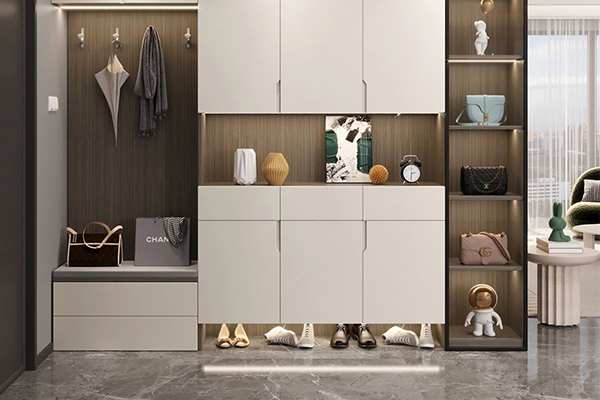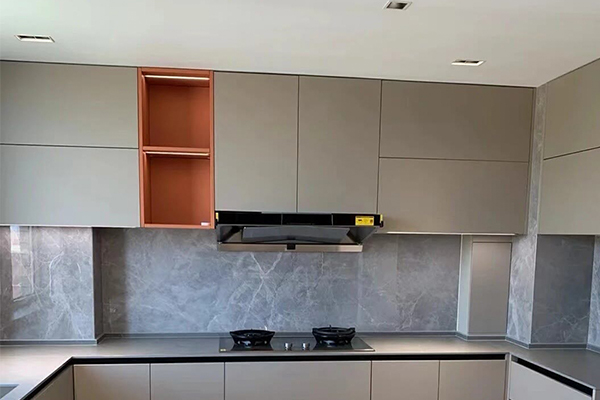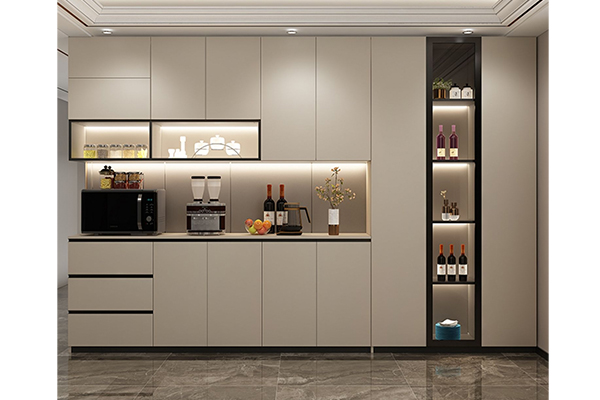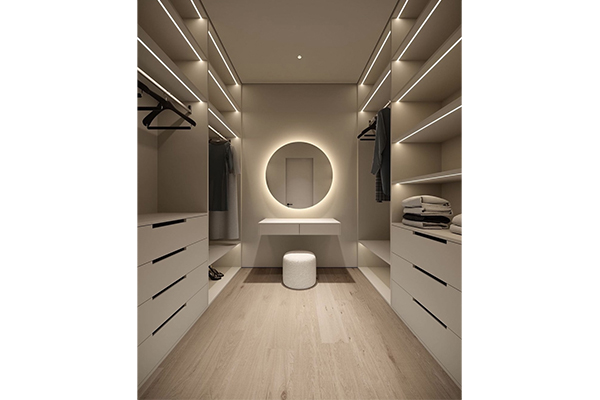Are the door panels and cabinets of kitchen cabinets prone to deformation or cracking?
Release Time : 2025-03-03
As an indispensable storage furniture in the family kitchen, the quality of the door panels and cabinets of kitchen cabinets directly affects the convenience and aesthetics of use. However, during use, some consumers may encounter problems with the deformation and cracking of the cabinet door panels or cabinets, which not only affects the service life of the cabinets, but also brings troubles to the overall aesthetics of the kitchen.
The deformation and cracking of the cabinet door panels and cabinets are often related to many factors. First of all, the choice of material is the key. Although solid wood cabinets have good texture and beautiful appearance, due to the natural properties of solid wood, its moisture content will change with the change of environmental humidity, resulting in the shrinkage and expansion of wood. If the moisture content of solid wood cabinets is not properly controlled, or if it is used for a long time in an environment that is too humid or dry, it is easy to deform and crack. In addition, the manufacturing process and structural design of solid wood cabinets will also affect their stability. Exquisite manufacturing process and reasonable structural design can effectively reduce the risk of deformation and cracking.
In addition to solid wood cabinets, artificial board cabinets such as particleboard and density board are also common choices. These artificial board cabinets are relatively affordable in price, but there is also the risk of deformation and cracking. On the one hand, it is equally important to control the moisture content of artificial boards. Improper moisture content will cause the boards to expand or shrink; on the other hand, the edge sealing process and glue quality of artificial boards will also affect their stability. If the edge sealing is not strict or the glue quality is poor, cracking is likely to occur.
In order to avoid deformation and cracking of kitchen cabinets door panels and cabinets, consumers can choose cabinet products with reliable quality and good brand reputation when purchasing. At the same time, attention should also be paid to maintenance during use. For example, avoid placing the cabinets in direct sunlight or humid environments, keep the kitchen ventilated and dry; clean the cabinet surface regularly, avoid wiping with too wet towels; avoid scratching the cabinet surface with sharp objects, etc.
In addition, consumers do not have to worry too much about cabinets that have already deformed or cracked. Some minor deformations and cracks can be handled by professional repair technology to restore the beauty and use function of the cabinets. If the deformation and cracking are more serious, it is recommended to contact the cabinet manufacturer or professional maintenance personnel in time for repair or replacement.
In summary, the deformation and cracking of kitchen cabinets door panels and cabinet bodies is an issue that needs attention. By choosing reliable products, paying attention to the use environment and maintenance, and dealing with problems in a timely manner, we can effectively extend the service life of the cabinets and maintain the overall beauty and tidiness of the kitchen.
The deformation and cracking of the cabinet door panels and cabinets are often related to many factors. First of all, the choice of material is the key. Although solid wood cabinets have good texture and beautiful appearance, due to the natural properties of solid wood, its moisture content will change with the change of environmental humidity, resulting in the shrinkage and expansion of wood. If the moisture content of solid wood cabinets is not properly controlled, or if it is used for a long time in an environment that is too humid or dry, it is easy to deform and crack. In addition, the manufacturing process and structural design of solid wood cabinets will also affect their stability. Exquisite manufacturing process and reasonable structural design can effectively reduce the risk of deformation and cracking.
In addition to solid wood cabinets, artificial board cabinets such as particleboard and density board are also common choices. These artificial board cabinets are relatively affordable in price, but there is also the risk of deformation and cracking. On the one hand, it is equally important to control the moisture content of artificial boards. Improper moisture content will cause the boards to expand or shrink; on the other hand, the edge sealing process and glue quality of artificial boards will also affect their stability. If the edge sealing is not strict or the glue quality is poor, cracking is likely to occur.
In order to avoid deformation and cracking of kitchen cabinets door panels and cabinets, consumers can choose cabinet products with reliable quality and good brand reputation when purchasing. At the same time, attention should also be paid to maintenance during use. For example, avoid placing the cabinets in direct sunlight or humid environments, keep the kitchen ventilated and dry; clean the cabinet surface regularly, avoid wiping with too wet towels; avoid scratching the cabinet surface with sharp objects, etc.
In addition, consumers do not have to worry too much about cabinets that have already deformed or cracked. Some minor deformations and cracks can be handled by professional repair technology to restore the beauty and use function of the cabinets. If the deformation and cracking are more serious, it is recommended to contact the cabinet manufacturer or professional maintenance personnel in time for repair or replacement.
In summary, the deformation and cracking of kitchen cabinets door panels and cabinet bodies is an issue that needs attention. By choosing reliable products, paying attention to the use environment and maintenance, and dealing with problems in a timely manner, we can effectively extend the service life of the cabinets and maintain the overall beauty and tidiness of the kitchen.







